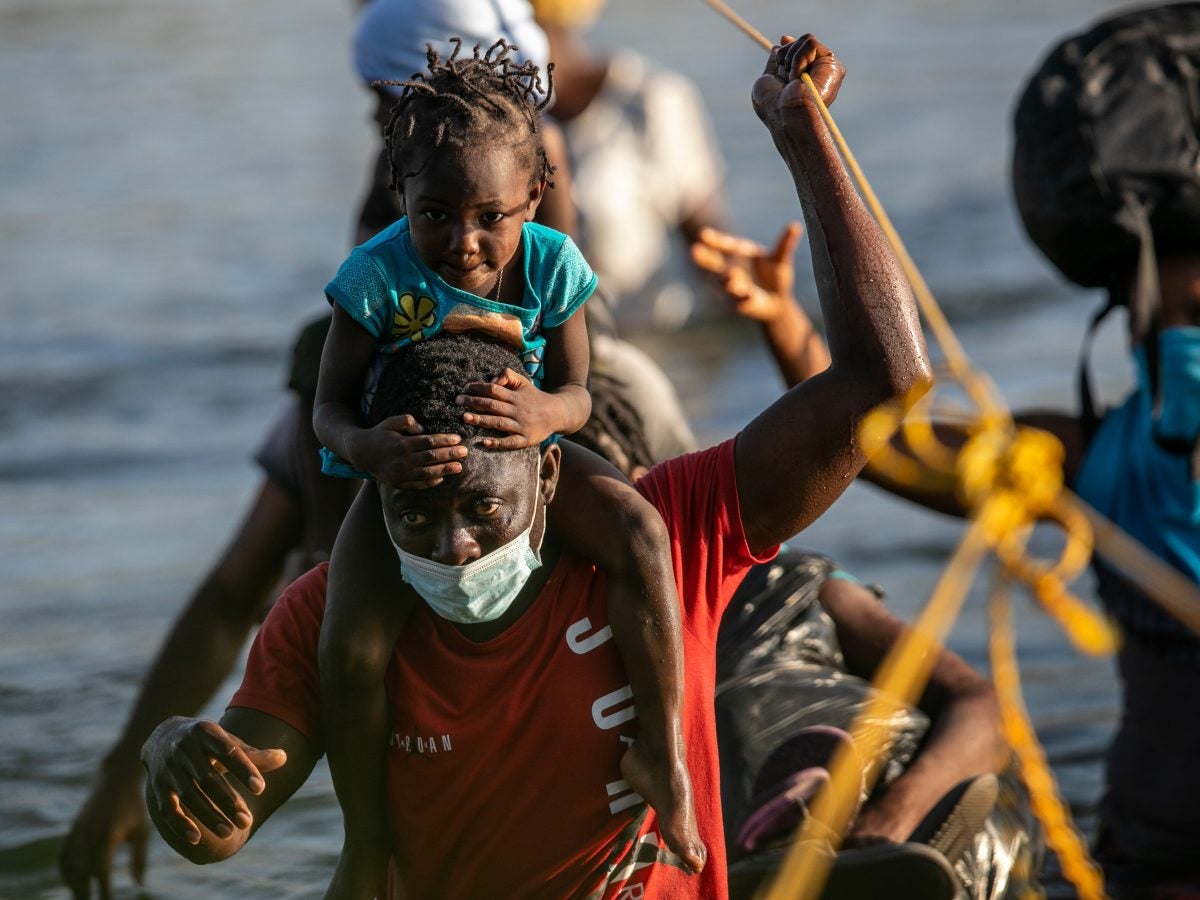
Haiti has suffered one blow after another this year. Before a 7.2 magnitude earthquake devastated the country’s southern peninsula in August—and a tropical storm caused severe flooding days later— media outlets reported on the July assassination of the nation’s president, Jovenel Moïse. Appeals for the United States to send aid to Haiti abounded. Such calls for assistance are not new—and do not reflect any particular interest in “helping” Haitians.
In 1915, U.S. President Woodrow Wilson’s administration used the death of a different Haitian president, Guillaume Vilbrun Sam, as a pretext to invade. But the U.S. had already seen assassinations of three of its own presidents: Lincoln, Garfield and McKinley. The real reason for the occupation was economic. Fearing that upheaval in the Haitian government might cause them to default on U.S.–backed loans, the U.S. ordered marines to seize $500,000 worth of gold reserves. The U.S. stayed in Haiti for 19 long years, the second-longest military occupation in U.S. history after Afghanistan. More than 15,000 Haitians lost their lives fighting against the United States’ seizure of Haitian sovereignty. The memory of this occupation—and those in 1994 and 2004— has cast a shadow over Haiti’s glorious past as the first nation to permanently abolish slavery.
Foreign troops again arrived in Haiti in 2010 after another devastating earthquake. Approximately 250,000 people perished— most of them near the capital of Port-au-Prince. During their so-called “stabilization mission,” U.N. peacekeepers brought another disaster to the island: a cholera epidemic caused by their improper waste disposal. Nearly 10,000 more Haitians died. Hundreds of thousands became ill. As Haitian nationals saw poverty, violence and corruption increase, billions in stolen or misappropriated aid funds fueled a legendary industry of disaster capitalism. Instead of condemning those seeking to profit from a disaster, Haiti’s former president Michel Martelly proudly proclaimed the country was “open for business.”
For anyone wondering if the earthquake that hit Haiti’s southern peninsula on August 14 of this year means that the country is “cursed,” as religious pundit Pat Robertson claimed after the 2010 quake, the answer is no. Haiti sits on two geologic faults—the Septentrional in the north, and the Enriquillo-Plantain in the south, so it is susceptible to earth tremors.
But the country’s geopolitical fault lines are also devastating. For two centuries, elites across the world have undermined Haitian sovereignty and impoverished its people. This began in 1825, when the country was forced into an agreement to pay France 150 million francs as the price of the freedom Haitian revolutionaries had already purchased with their spilled blood. As history shows, if natural disasters have been deadly for Haiti, so have the human-made ones.
The horrifying images of U.S. border agents on horseback chasing Haitian migrants makes it all too apparent that, when it comes to Haitians, US foreign policy has never been about “helping.”
– Historian Marlene Daut, Ph.D,
While Cuban refugees have historically benefited from blanket humanitarian asylum in the U.S., Haitians seeking the same relief have been routinely expelled. Just in the last week, under Title 42 (which allows expulsion of migrants for reasons of public health) the U.S. began the process to remove thousands of Haitians sheltering near the Rio Grande, which straddles the border between Del Rio, Texas and Ciudad Acuna in Mexico.
Under President Biden many Central American migrants have, in contrast, been granted entry to the U.S. The UN refugee chief has stated that the U.S. government’s expulsion of the Haitian migrants is a potential violation of international law, given current realities in Haiti that could put their lives in danger. The horrifying images of U.S. border agents on horseback chasing Haitian migrants makes it all too apparent that, when it comes to Haitians, US foreign policy has never been about “helping.”
“Nou nan male ak oganizasyon mondyal (We are in trouble with the world system),” laments Haitian singer Manno Charlemagne in his 1988 album of the same name. Yes, Haiti has been in trouble with the world ever since its revolution against slavery in 1804. With an assassination followed by an earthquake, floods, and inhumane expulsions this year—and with U.S. soldiers leaving behind a disaster in Afghanistan just as others were arriving in Haiti to “help” with a different disaster—nou nan male, indeed.
Marlene Daut, Ph.D, is the author of Tropics of Haiti: Race and the Literary History of the Haitian Revolution in the Atlantic World (2015).